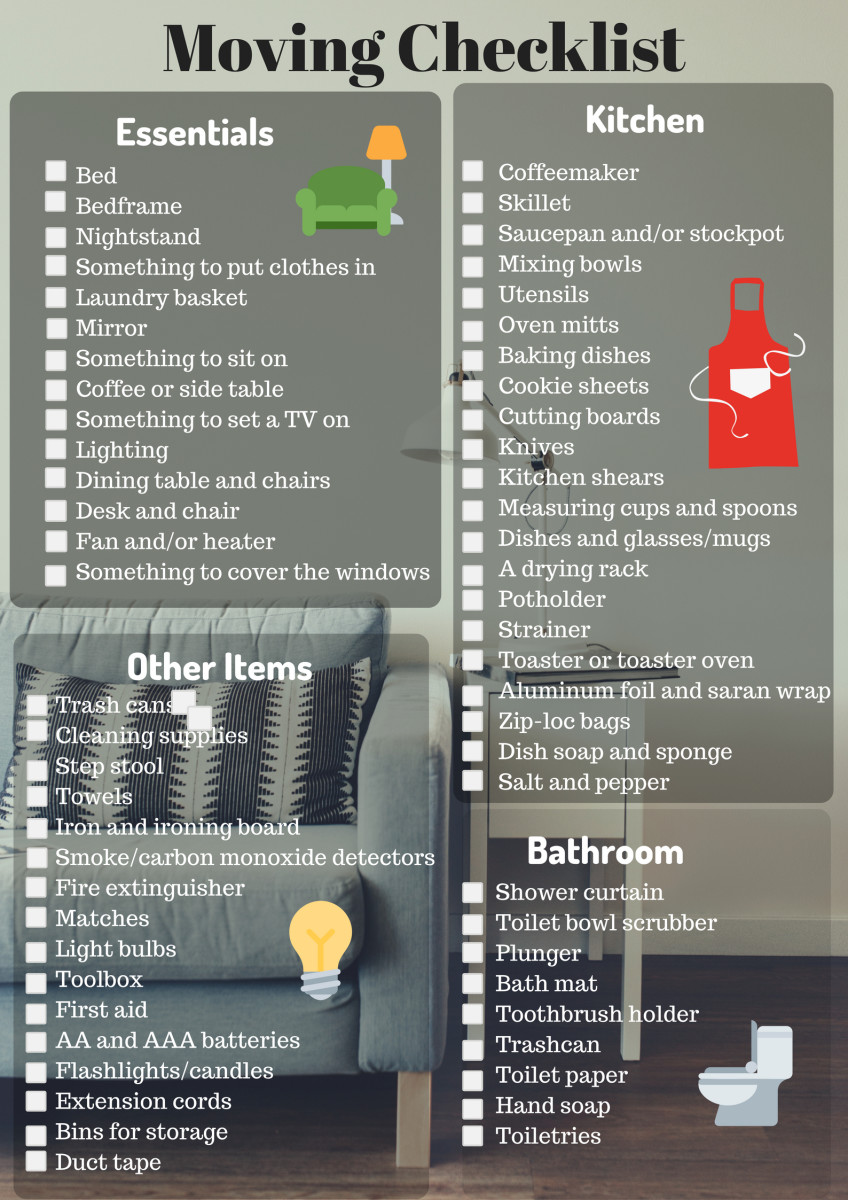How to Prepare for Independent Living
Preparing for independent living at 18 requires careful planning and consideration. One of the most critical steps is creating a budget that accounts for all expenses, including rent, utilities, food, and transportation. It’s essential to prioritize needs over wants and make smart financial decisions to ensure a smooth transition to independent living.
Another crucial aspect of preparing for independent living is finding affordable housing. This can be a daunting task, especially in areas with high demand and limited supply. However, with persistence and patience, it’s possible to find a suitable place to call home. Consider factors such as location, safety, and amenities when searching for the perfect place.
Building a support network is also vital for young adults who are moving out at 18. This can include friends, family members, or mentors who can provide emotional support and guidance during the transition. Having a support network in place can help alleviate stress and anxiety, making the transition to independent living much smoother.
Additionally, it’s essential to have a plan in place for managing daily tasks, such as cooking, cleaning, and laundry. Consider taking a cooking class or learning basic cleaning and laundry skills to ensure a smooth transition to independent living.
By following these practical tips, young adults can prepare themselves for the challenges and responsibilities that come with independent living at 18. Remember, moving out at 18 is a significant milestone, and with careful planning and preparation, it can be a successful and empowering experience.
Understanding Your Rights and Responsibilities
When moving out at 18, it’s essential to understand the legal rights and responsibilities that come with independent living. One of the most critical aspects is signing a lease, which is a legally binding contract between the tenant and landlord. It’s crucial to carefully review the lease agreement before signing, ensuring that you understand the terms and conditions.
In addition to signing a lease, young adults who move out at 18 must also navigate tenant-landlord relationships. This includes understanding the responsibilities of both parties, such as paying rent on time and maintaining the property. It’s also essential to know how to resolve disputes and address any issues that may arise.
Another critical aspect of independent living is managing finances, including paying bills and utilities. Young adults who move out at 18 must understand how to prioritize expenses, create a budget, and make smart financial decisions. This includes understanding how to read and manage utility bills, as well as how to negotiate with service providers.
For young adults who are unsure about their rights and responsibilities, there are resources available to provide guidance and support. Many cities and states offer tenant-landlord mediation services, which can help resolve disputes and provide advice on navigating the rental market. Additionally, online resources such as the National Housing Law Project and the American Bar Association’s Section of Real Property, Trust and Estate Law can provide valuable information and guidance.
By understanding their rights and responsibilities, young adults who move out at 18 can navigate the challenges of independent living with confidence. Whether it’s signing a lease, managing finances, or navigating tenant-landlord relationships, having a clear understanding of the law can make all the difference.
Financial Considerations: Can You Afford to Move Out?
One of the most significant concerns for young adults who are considering moving out at 18 is the financial implications. Can you afford to move out at 18? The answer depends on various factors, including your income, expenses, and financial goals. In this section, we’ll explore the financial considerations of moving out at 18 and provide advice on how to manage your finances effectively.
The cost of rent is one of the most significant expenses for young adults who move out at 18. According to recent statistics, the average rent for a one-bedroom apartment in the United States is around $1,100 per month. This can be a significant burden for young adults who are just starting their careers or are still in school. However, there are ways to reduce the cost of rent, such as finding a roommate or looking for apartments outside of the city center.
In addition to rent, young adults who move out at 18 must also consider the cost of utilities, food, and other expenses. The cost of utilities, such as electricity, water, and internet, can range from $100 to $300 per month, depending on the location and usage. Food expenses can also be significant, especially if you’re not used to cooking for yourself. However, there are ways to reduce food expenses, such as meal planning, cooking in bulk, and using coupons.
To manage your finances effectively, it’s essential to create a budget that accounts for all your expenses. Start by tracking your income and expenses to see where your money is going. Then, create a budget that allocates your income into different categories, such as rent, utilities, food, and entertainment. Be sure to prioritize your expenses and make smart financial decisions to ensure that you’re not overspending.
Another important aspect of financial management is saving for the future. As a young adult, it’s essential to start saving for long-term goals, such as retirement, a down payment on a house, or a car. Consider opening a savings account or investing in a retirement fund to start building your wealth.
By understanding the financial implications of moving out at 18 and managing your finances effectively, you can make a successful transition to independent living. Remember, it’s essential to be patient, responsible, and smart with your finances to achieve your long-term goals.
Emotional Readiness: Are You Prepared for Independence?
Moving out at 18 can be a thrilling experience, but it can also be emotionally challenging. As a young adult, you may be leaving behind the comfort and security of your family home, and embarking on a new journey of independence. But are you emotionally ready for this transition?
Emotional readiness is a crucial aspect of moving out at 18. It involves being prepared to handle the stresses and challenges of independent living, including managing your own finances, cooking and cleaning for yourself, and navigating relationships with roommates and neighbors.
One of the most significant emotional challenges of moving out at 18 is dealing with stress and anxiety. As a young adult, you may be juggling multiple responsibilities, including work, school, and social relationships. This can be overwhelming, especially if you’re not used to managing your own time and priorities.
To build emotional readiness, it’s essential to develop healthy coping mechanisms, such as exercise, meditation, or talking to a therapist. It’s also important to prioritize self-care, including getting enough sleep, eating a balanced diet, and engaging in activities that bring you joy and relaxation.
Another critical aspect of emotional readiness is building a support network. This can include friends, family members, or mentors who can provide emotional support and guidance during the transition to independent living. Having a support network in place can help alleviate stress and anxiety, and provide a sense of security and belonging.
Finally, it’s essential to maintain relationships with family and friends after moving out at 18. This can be challenging, especially if you’re living in a new city or state. However, with the help of technology, such as video calls and social media, it’s easier than ever to stay connected with loved ones.
By building emotional readiness, you can navigate the challenges of independent living with confidence and resilience. Remember, moving out at 18 is a significant milestone, and it’s essential to be prepared for the emotional ups and downs that come with it.
Alternative Options: Is Moving Out at 18 Right for You?
Moving out at 18 can be a significant decision, but it’s not the only option available to young adults. In fact, there are several alternative options to consider, each with its own pros and cons. In this section, we’ll explore some of the alternative options to moving out at 18 and help you decide what’s best for you.
One alternative option to moving out at 18 is staying with family or friends. This can be a great option for young adults who are not ready for independent living or who need to save money. Staying with family or friends can provide a sense of security and stability, and can also help you build relationships and connections with loved ones.
Another alternative option is attending college or university. This can be a great way to gain education and skills, and can also provide a sense of independence and autonomy. Many colleges and universities offer on-campus housing, which can provide a sense of community and connection with peers.
Participating in gap year programs is another alternative option to moving out at 18. Gap year programs can provide a sense of adventure and exploration, and can also help you build skills and experience. Many gap year programs offer opportunities for travel, volunteering, and internships, which can be a great way to gain experience and build your resume.
Ultimately, the decision to move out at 18 or pursue alternative options depends on your individual circumstances and goals. It’s essential to weigh the pros and cons of each option and consider what’s best for you. By exploring alternative options, you can make an informed decision and set yourself up for success.
When considering alternative options, it’s essential to think about your financial situation, academic goals, and personal preferences. You should also consider your support system, including family and friends, and think about how you can maintain relationships and connections while pursuing your goals.
By exploring alternative options and considering what’s best for you, you can make a decision that aligns with your goals and values. Remember, there’s no one-size-fits-all solution, and what works for someone else may not work for you. By taking the time to consider your options and make an informed decision, you can set yourself up for success and achieve your goals.
Real-Life Examples: Stories of Young Adults Who Moved Out at 18
Moving out at 18 can be a daunting experience, but it can also be a liberating one. Many young adults have made the decision to move out at 18 and have gone on to thrive in their independent lives. In this section, we’ll share some real-life examples of young adults who moved out at 18, including their successes and challenges.
One example is Sarah, who moved out of her family’s home at 18 to attend college in a different city. She had always been independent and was excited to start her new life. However, she quickly realized that living on her own was not as easy as she thought it would be. She had to navigate the challenges of cooking, cleaning, and managing her finances, all while balancing her coursework.
Despite the challenges, Sarah thrived in her new environment. She made new friends, joined clubs and organizations, and even landed a part-time job to help pay her expenses. She credits her decision to move out at 18 with helping her develop the skills and confidence she needed to succeed in life.
Another example is Alex, who moved out of his family’s home at 18 to pursue a career in music. He had always been passionate about music and wanted to focus on his craft. However, he quickly realized that making a living as a musician was not easy. He had to work multiple jobs to make ends meet and faced many rejections and setbacks.
Despite the challenges, Alex persevered and eventually landed a record deal. He credits his decision to move out at 18 with giving him the freedom and independence he needed to pursue his dreams.
These stories illustrate that moving out at 18 can be a successful and empowering experience. However, it’s essential to be aware of the challenges and to be prepared for the responsibilities that come with independent living.
By sharing these real-life examples, we hope to inspire and motivate readers who are considering making the move. Remember, moving out at 18 is a significant decision, but it can also be a liberating one. With the right mindset and preparation, you can thrive in your independent life and achieve your goals.
Conclusion: Taking the Leap to Independence
Moving out at 18 can be a daunting experience, but it can also be a liberating one. As we’ve discussed throughout this article, there are many pros and cons to consider when deciding whether to move out at 18. However, with the right mindset and preparation, you can make a successful transition to independent living.
Remember, moving out at 18 is a significant decision that requires careful consideration. It’s essential to weigh the pros and cons, assess your financial situation, and consider your emotional readiness. By doing so, you can make an informed decision that aligns with your goals and values.
If you’re considering moving out at 18, we encourage you to take the leap to independence. With the right mindset and preparation, you can thrive in your new life and achieve your goals. Don’t be afraid to ask for help, seek advice from trusted sources, and prioritize your well-being.
As you embark on this new chapter in your life, remember that it’s okay to make mistakes. It’s okay to stumble and fall. But it’s not okay to give up. Keep pushing forward, stay focused, and always keep your goals in mind.
In conclusion, moving out at 18 can be a challenging but rewarding experience. By being prepared, staying focused, and prioritizing your well-being, you can make a successful transition to independent living. So, if you’re ready to take the leap to independence, go for it You got this!
Conclusion: Taking the Leap to Independence
In conclusion, moving out at 18 can be a challenging but rewarding experience. It’s essential to weigh the pros and cons, assess your financial situation, and consider your emotional readiness before making the move. By doing so, you can make an informed decision that aligns with your goals and values.
Remember, moving out at 18 is a significant decision that requires careful consideration. It’s essential to have a plan in place, including a budget, affordable housing, and a support network. By being prepared, you can make a successful transition to independent living and achieve your goals.
As you consider moving out at 18, remember that it’s okay to ask for help and seek advice from trusted sources. Prioritize your well-being, stay focused, and always keep your goals in mind. With the right mindset and preparation, you can thrive in your new life and achieve your dreams.
So, if you’re ready to take the leap to independence, go for it You got this Remember, moving out at 18 is a significant milestone, but it’s also a liberating experience that can help you grow and develop as a person. Don’t be afraid to take the leap and start your new life.
In the end, the decision to move out at 18 is a personal one that depends on your individual circumstances and goals. By considering the pros and cons, assessing your financial situation, and prioritizing your well-being, you can make an informed decision that aligns with your values and aspirations.
Good luck on your journey to independence May you thrive in your new life and achieve your dreams.







